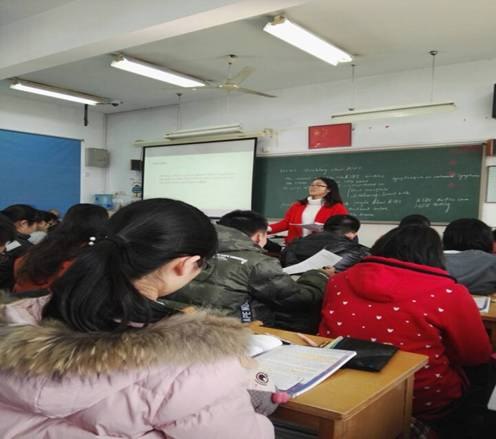Revision of vocabulary on AIDS in M10U3
luyue

Teaching aims:
1.To review some words and expressions on AIDS by reviewing the passage “AIDS Today”.
2.To expand some new words and expressions on AIDS by reading a new article about AIDS.
3.To apply the vocabulary reviewed and learned to a composition talking about how to protect themselves from AIDS.
Teaching procedures:
1.Inform students of the main task--writing a short passage about protecting themselves from AIDS and encourage them to predict what information will be mentioned in their passage. Through prediction, the main idea and key words and expressions about AIDS from the passage “AIDS Today” will be extracted.
2.Help students to refresh some key words and expressions in the vocabulary bank by reading them together loudly.
3.Ask students to consolidate how to use all these words and expressions properly by filling in a short summary about the passage.
4.Encourage students to read a supplementary passage about AIDS in order to enrich their vocabulary and knowledge about AIDS, thus helping them get prepared for the following writing task.

4.Help students to learn how to use these new words and expressions about diseases by translating a short summary about the new passage with reference to some key words and phrases extracted during the reading comprehension process.
5.Guide students to write a short passage about diseases with reference to the key words and expressions mentioned in the vocabulary bank and in the vocabulary expansion.
教学反思:
1. 对于学生的预设不够充分,因此在复习词汇环节以及新词提取环节,学生的反应不如预期的好,从而影响了整节课的教学节奏;
2. 课堂的互动不是很丰富,从而没有充分调动学生的学习积极性,在小组讨论环节学生没有发挥小组合作的优势;
3. 词汇复习课的重点到底在哪里,我觉得按照话题进行复习,多尝试运用思维导图的模式进行教学,注重lexical chunks的教学,而不是单一词汇的教学,使得词汇学习是散乱的状态,不利于提升词汇学习的效率。以话题为中心进行延展,既可以激发学生的原有话题词汇,也可以进行相关词汇的补充,不会让学生觉得负担过重,也可以进行不同梯度的联系,从词到句,从句到段,从段到章,层层深入,最终回到运用话题词汇进行话题写作。
an>